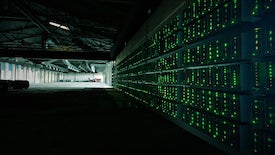France Bets Big: Lawmakers Target $150M Windfall From Bitcoin Mining Boom
Paris pushes crypto frontiers as legislators tap into mining's profit potential—because why let Norway and Texas have all the fun?
The Hash Rush Heats Up
French politicians are drafting plans to harness Bitcoin's energy-hungry golden goose. The $150 million target? A drop in the bucket for traditional finance—but a seismic shift for crypto adoption in the EU's second-largest economy.
Nuclear-Powered Mining?
With 56 reactors nationwide, France could repurpose excess nuclear capacity for mining ops. A cheeky middle finger to Germany's coal-dependent miners—and a potential blueprint for state-backed crypto profits.
The Fine Print
Regulators whisper about 'sustainable frameworks' while eyeing tax revenues. Because nothing greases political wheels like fresh funding—even if it comes from Satoshi's anarchic creation.
As one banking lobbyist grumbled: 'First they ignore crypto, then they tax it. Classic.'
Key Takeaways
- French lawmakers propose using excess nuclear power for Bitcoin mining, estimating $150 million in annual revenue.
- The plan aims to stabilize the grid and monetize surplus energy that would otherwise be sold at a loss.
- Secondary benefits include heat recovery for local infrastructure, following global trends in sustainable mining.

French lawmakers are advancing plans to leverage the nation’s surplus nuclear energy for Bitcoin mining, estimating up to $150 million in yearly revenue from such operations.
Lawmakers propose energy utilization pilot
On July 11, a bill was submitted to France’s National Assembly proposing a five-year pilot program.
This program would permit electricity producers to redirect excess power—often wasted during periods of low grid demand—toward bitcoin mining.
Citing data from the Association for the Development of Digital Assets (ADAN), lawmakers noted that dedicating just one gigawatt of surplus energy could yield between $100 million and $150 million per year.
This approach could help offset the fixed costs of maintaining France’s nuclear plants while monetizing energy that WOULD otherwise be sold at a loss.
Grid stability and nuclear synergy
The proposal follows prior calls for the government to assess whether Bitcoin mining can absorb excess nuclear-generated electricity.
Lawmakers stressed the challenge posed by intermittent renewables like wind and solar, which create imbalances and overproduction.
They stated:
“The significant share of [renewable energy sources] in our electricity mix is leading to recurring imbalances on the grid, including episodes of overproduction that force electricity producers to sell at a loss due to a lack of storage facilities. These unutilized surpluses represent an unacceptable economic and energy loss.”
Secondary benefits and global examples
The bill also highlights secondary benefits, such as heat recovery from mining equipment, which could be used for district heating, greenhouses, or industrial processes.
Examples from countries like Finland demonstrate how mining-generated heat can support agriculture and infrastructure.
France joins global mining trend
If enacted, the pilot would commence immediately, with a feasibility report after six months.
France would join countries like Pakistan, Belarus, and Texas in exploring Bitcoin mining as a solution for electricity oversupply.

